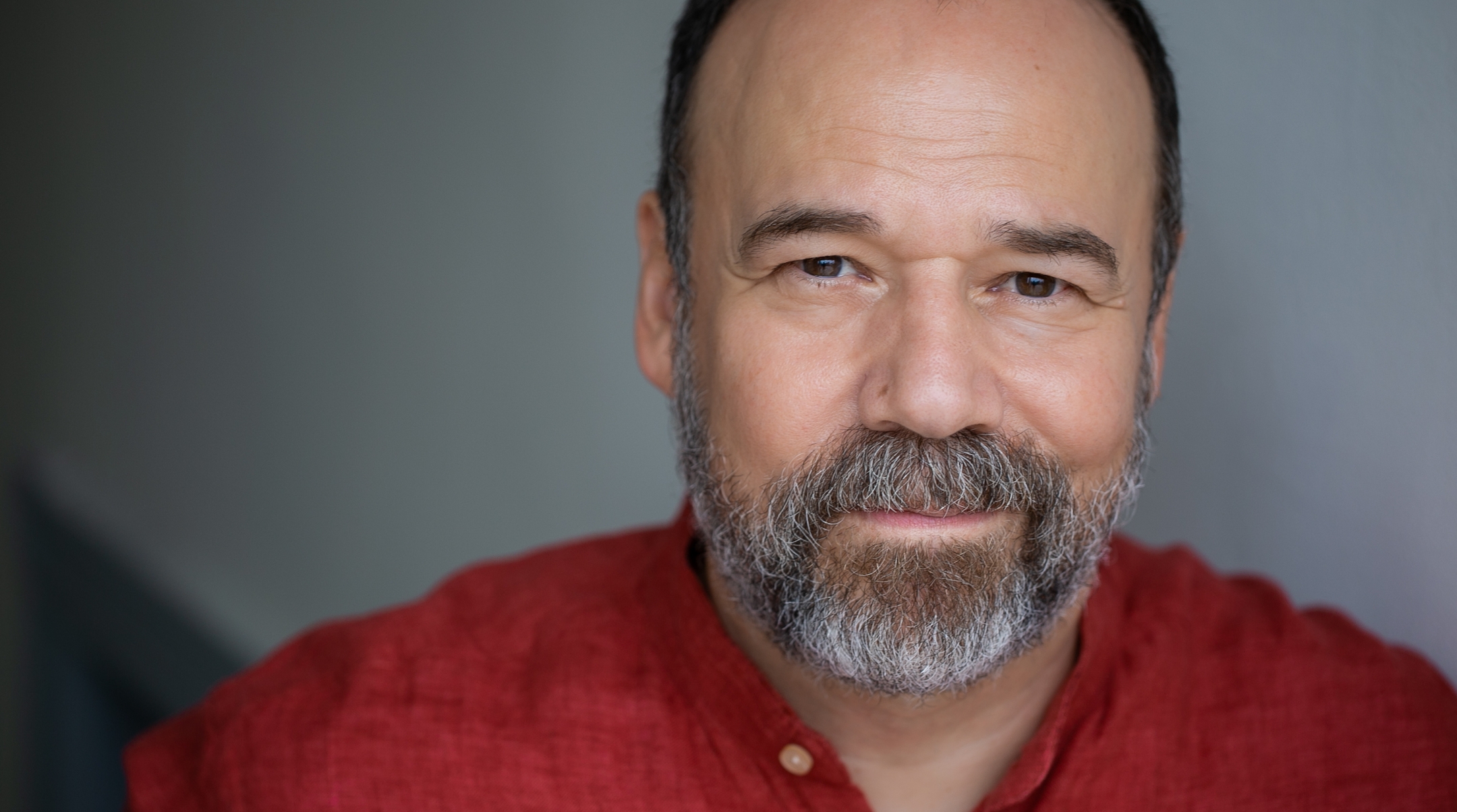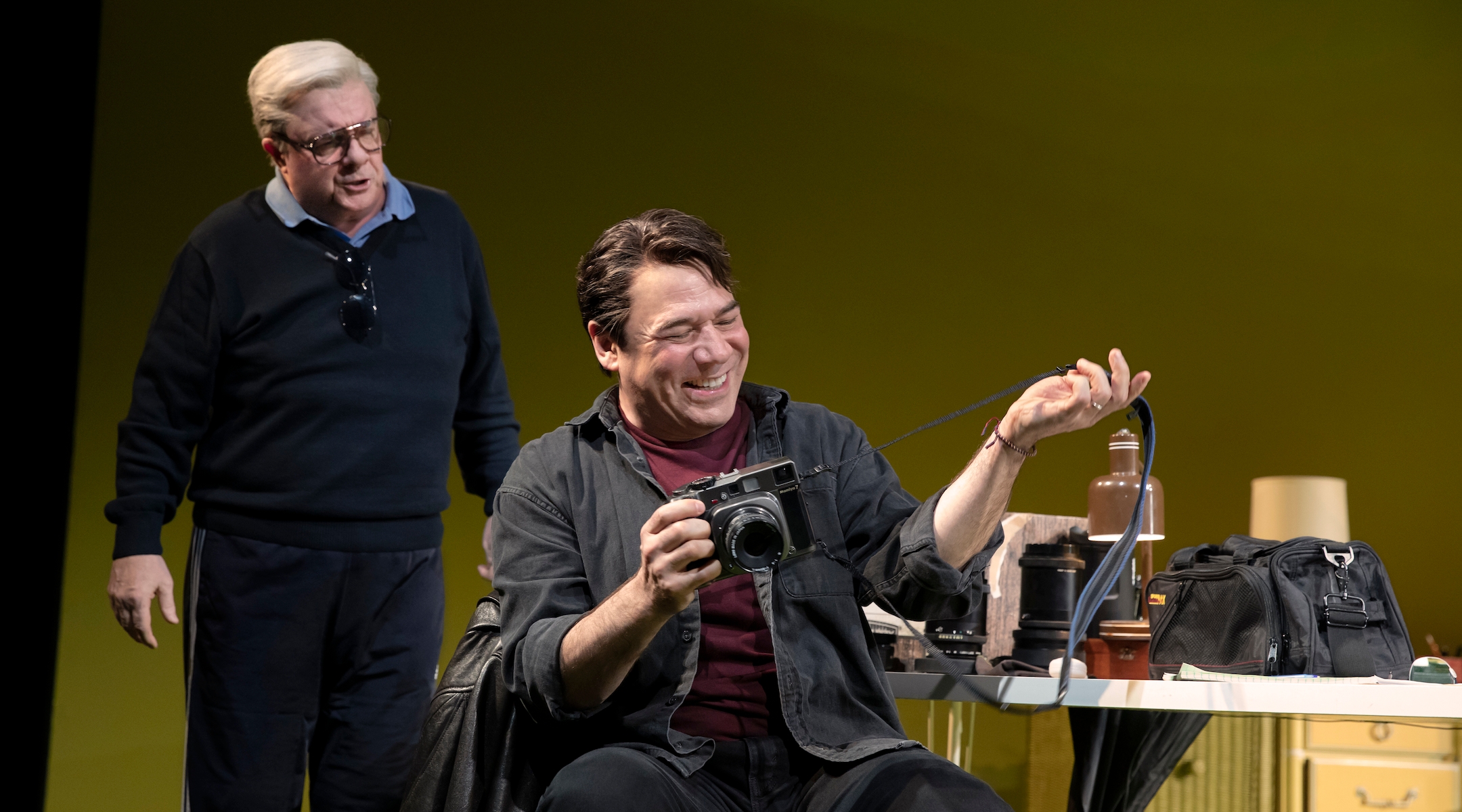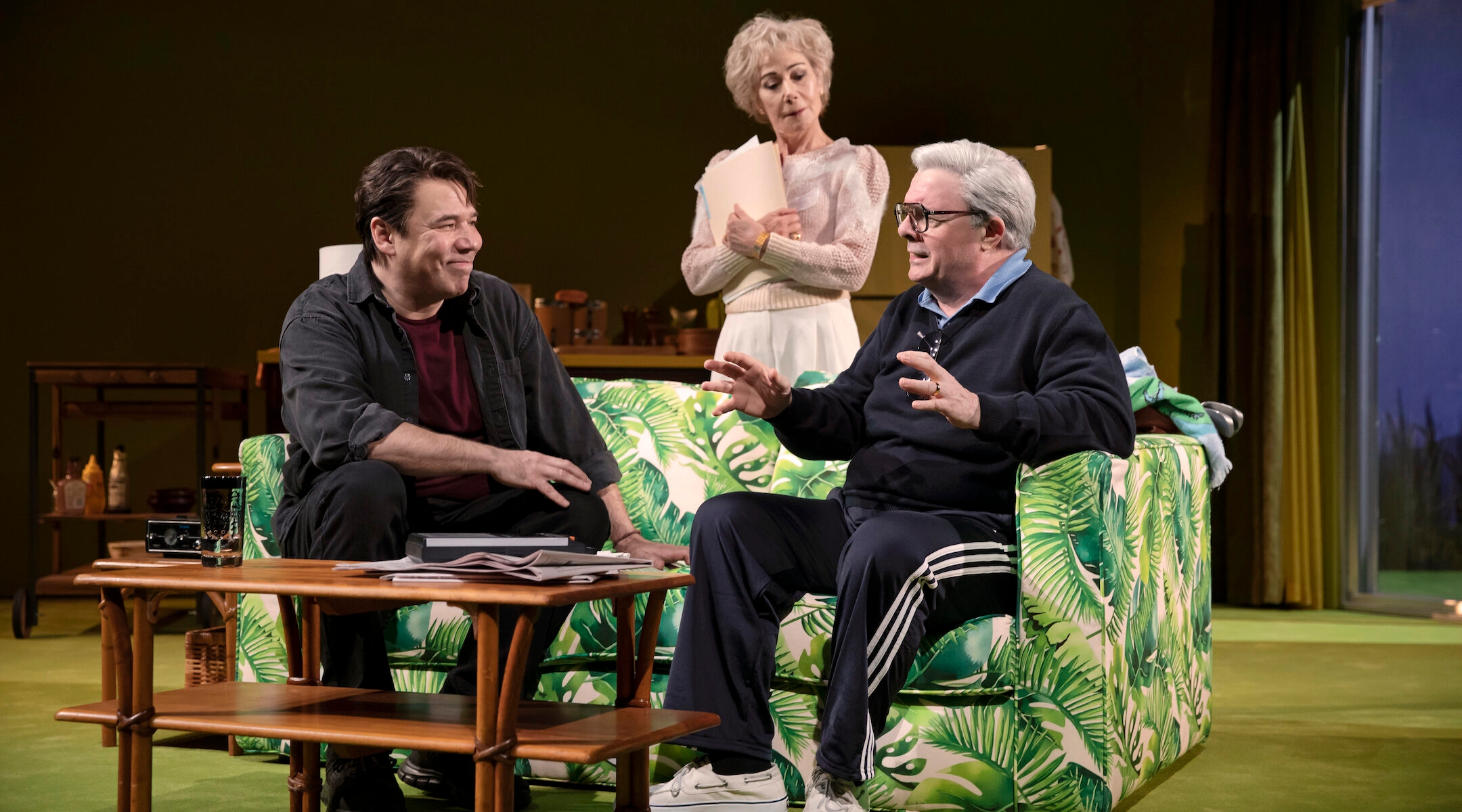(New York Jewish Week) – In “Pictures from Home,” a new Broadway play, a photographer takes on a nearly 10-year project to chronicle the lives of his aging parents. As the son snaps pictures and interrogates his parents in their Southern California home, the three offer very different versions of their shared past and spar about the very meaning of “truth.”
“Loads of emotions came up during the show,” said Broadway veteran Danny Burstein, who plays the son, Larry. “Larry’s desire and passion to know more and to not just look at others critically but himself critically as well is inspiring to me. It’s a beautiful story.”
Written by Sharr White and directed by Bartlett Sherr, the play is based on the 1992 photo-memoir by Larry Sultan, an acclaimed photographer who died in 2009. Nathan Lane plays the father, Irving, a Brooklyn-born Jew who struggled as a salesman but eventually became a vice president at Schick, the razor company. Acclaimed British actress Zoë Wanamaker plays the mom, a real estate agent who sometimes feels underappreciated as a breadwinner following Irving’s early (or was it forced?) retirement. Irving, raised in part in a Jewish orphanage, bitterly recalls the antisemitism he faced – and swallowed – on his way up the shaky ladder of success.
And father and son clash not only over the project, but Larry’s career. Irv can’t quite understand how his son actually makes a living as a photographer and asks: “Where’s the rigor?”
Throughout the play, real recordings, home videos and the blown-up photos of his parents that appeared in Sultan’s photo-memoir are projected on the set behind the actors.
Burstein, 58, was nominated for a Tony Award for his portrayal of Tevye in the most recent Broadway production of “Fiddler on the Roof.” A week after the opening of “Pictures,” he spoke to the New York Jewish Week about the Jewishness of the show and how it has impacted him so far.
This interview has been lightly edited for length and clarity.

Danny Burstein, who plays photographer Larry Sultan, won the 2020 Tony Award for Best Featured Actor in a Musical for his role at Harold Zilder in “Moulin Rouge!” (Courtesy)
New York Jewish Week: The concept of the show is a bit challenging to describe — it’s a play based on a memoir based on a series of photographs. How would you describe what the play is about?
Danny Burstein: It’s based on the beautiful book by the same title, which has incredible pictures in it but also contains the memoir of his time with his parents. It’s all a bit convoluted, but it comes together in a beautiful way. A play has not been told in this particular way before and it is quite unique. So it’s different, and you have to let people know that it is different from anything they’ve ever seen before, as far as the storytelling goes. It is a story of family and it’s also the story of the creation of art — sometimes it’s quiet, sometimes it’s passionate and volatile. Sometimes it’s extremely funny. It’s all those things when you’re making a piece of art.
You “feel all the feels” in other words. That’s the beautiful thing about the play. Larry winds up discovering things about himself and about his history and his parents.
Were you familiar with Larry’s work before the show or did playing him bring you closer to who he was?
I was not familiar with his work at all before the play, but at the same time now I feel very, very connected to the work and to who he was. One of the things that I’m very grateful for is that Larry’s [widow], Kelly, provided us with some of the actual tapes and recordings of conversations with his parents, so I got to listen to them actually talking. It was all of a sudden a very different kind of animal.
It’s dramatized for our show and there was sometimes volatility, but mostly it was a lot of the two of them just sitting down and loving one another and chatting and reminiscing and hearing their origin stories, like how the family got to California from Brooklyn. It’s really a beautiful story and there’s a lot of love in the family. I also love Larry’s artistic pursuits and his artistic sensibility in finding several different meanings in one picture, maybe hundreds of meanings. He believed each person subjectively finds their own meaning in a piece of art and I love that about him.

Nathan Lane (Irving Sultan) and Danny Burstein (Larry Sultan) in “Pictures From Home.” (Julieta Cervantes)
How do you think the family’s Jewishness impacted the way they interacted with the world and with each other?
It [their Jewishness] absolutely affects the way they exist in the world. I always think of [Larry’s] artistic journey as being very Talmudic — it seems to me that he’s constantly asking questions and trying to get to the heart of the matter. That’s fundamentally Jewish. That practice of always questioning, and bringing that questioning not just to religion but to everyday life and to art is also fundamentally Jewish. I don’t want to make it sound like only Jews are exceptional intellectually, but that that level of intellectual pursuit is part of the Jewish culture.
So Larry’s Jewishness certainly informed his intellectual and artistic pursuits. How do you think your Jewish background informed the way you approached this character and characters you’ve played in the past?
I was raised in a certain way: to question things. I can see a lot of my own relationship with my own father in the relationship between Larry and Irv. I’m sure I drove my father crazy. When I told my parents I wanted to be an actor, they were not dismissive of it. They didn’t say, “you’re wasting your life,” but they weren’t exactly supportive, either. They remained very neutral and said: “If this is what you want to do, then you’re going to have to work your ass off in order to make your dream come true.” So it wasn’t so much about the pursuit of financial success, the way Irv says, but it was about them worrying whether I could actually make a living at it and survive.
I guess it’s the same kind of fear that any parent would have. My younger son is a musician and my older son is a first [assistant director] on films. Those are not exactly the kinds of things you’re going to go into to make a lot of money. They’re pursuits of passion. I guess I felt the same way, I was worried for them. But knowing my own journey and knowing my father’s journey, who wanted to be a writer — he studied with Philip Roth at the University of Iowa — and then decided to leave all that to to pursue a career in ancient Greek philosophy. So I guess he understood, too, the way I did. I guess it all comes full circle. So, I did not run up against the kind of wall that Larry ran up against, where basically Irv would call him a loser, as he does in the show, because he was not more of a financial success.
Pictures from Home is currently playing at Studio 54 (254 W. 54th St.) through April 30, 2023. Tickets and informationh here.
The New York Jewish Week brings you the stories behind the headlines, keeping you connected to Jewish life in New York. Help sustain the reporting you trust by donating today.





